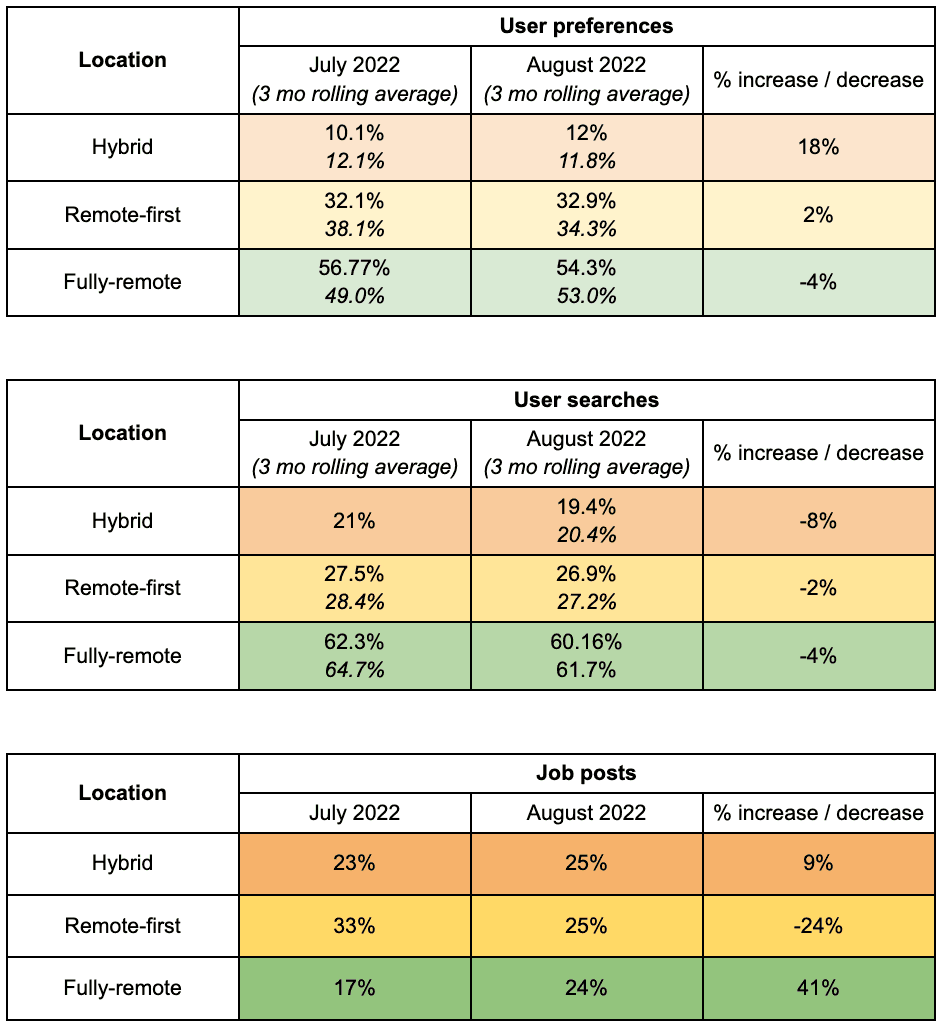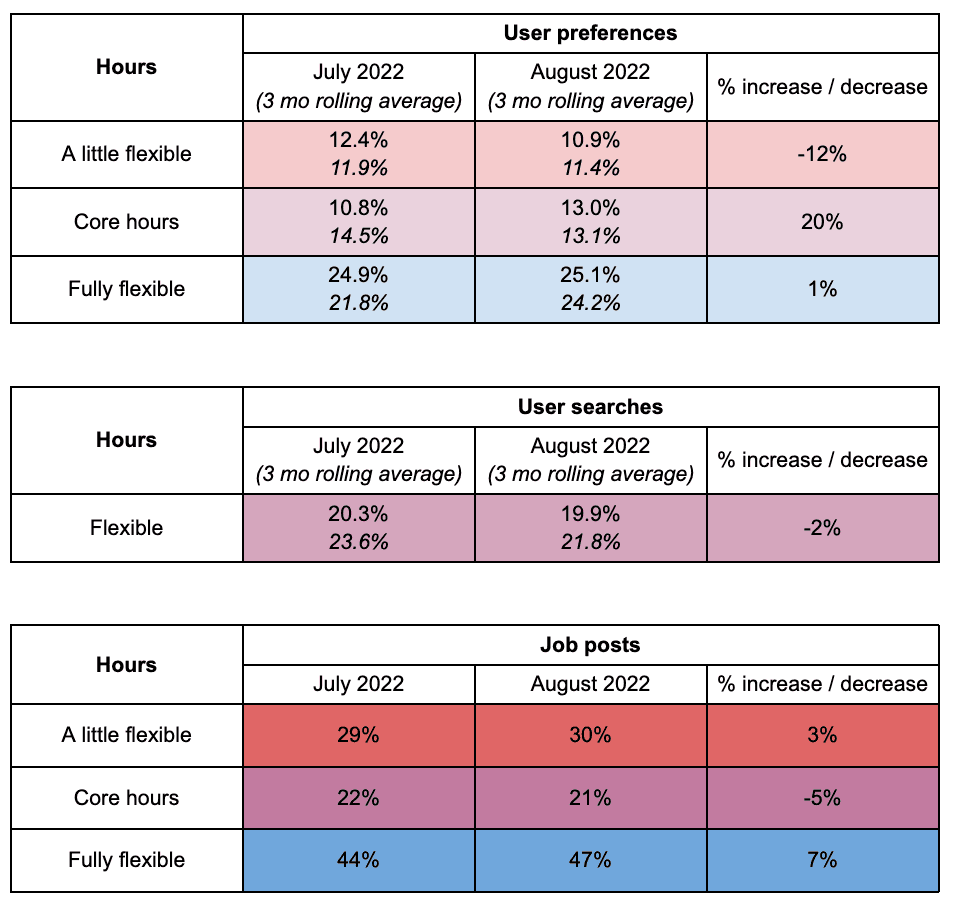Flexible Working Index August: What Job Hunters Are Looking For
6th Sep 2022

This month’s Flexible Working Index has revealed a range of key trends, including that employees want more say in their working hours. The Index, which tracks where, when and how people prefer to work, analyses data from our platform, Flexa Careers.
August’s Index analysed a sample size of 36,899 user searches to reveal what kind of roles and companies were most in-demand over the last month.
A surge in the availability of fully-remote jobs
In August 2022, there was a huge surge in the number of fully-remote roles being advertised by companies. Our platform saw a 41% spike in roles offering year-round remote work, between July and August; following an 84% increase between June and July.
The upward trend suggests that companies are catching up with preferences expressed by job seekers. July saw a record number of employees express a preference for full remote roles that don't require them to come into the office. Overall, 57% of job seekers across July prioritised fully remote roles, the highest rate in 2022 to date.
Core hours become a core need
The number of users expressing a preference for core hours (where staff must work during specific hours of the day, for example, 11am-3pm, but have full flexibility to choose when else they work outside of those times) shot up by an incredible 20% in August, compared with July. This spike coincides with the end of the summer holidays, and the returning pressure on some parents fitting in work around school drop-off and pick-up times.
Job-sharers are making their mark
Compared to July, August saw a 14% spike in the number of people expressing an interest in job-sharing opportunities, which has many benefits for both employees and employers. Similarly, part-time roles have seen a month-on-month increase in popularity since the start of the year, based on 3-month rolling averages. Between July and August, this number rose by 5%.
The call for over-50s to return to work and the parallel ‘unretirement’ trend could be contributing to the demand for alternatives to full-time roles. The growing childcare crisis may also be affecting the increase in demand for roles which are more compatible with caring responsibilities.
Molly Johnson-Jones, co-founder and CEO of Flexa Careers, comments:
“Work constitutes a huge part of our lives. So it’s only natural that working preferences track wider trends across the economy and even the school calendar. The insights we’ve gleaned from thousands of job hunters and analysed in this report tell that story.
The most important thing is that our working lives fit around our personal lives, needs and priorities - rather than the other way around. And, right now, companies that offer job sharing and part-time roles are in the best position to attract more experienced talent, as well as those with young families - who may not otherwise want to or be able to work.”
Full flexible working data

